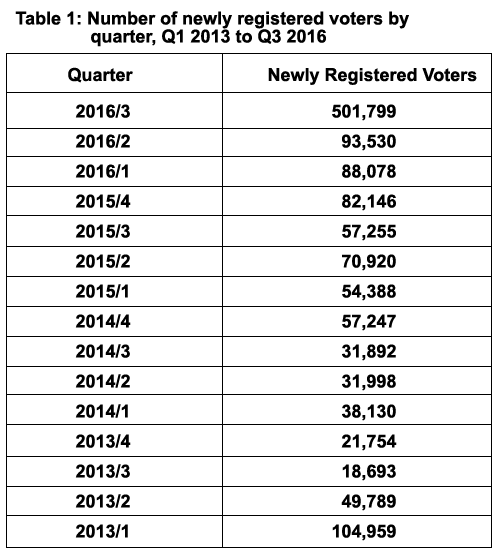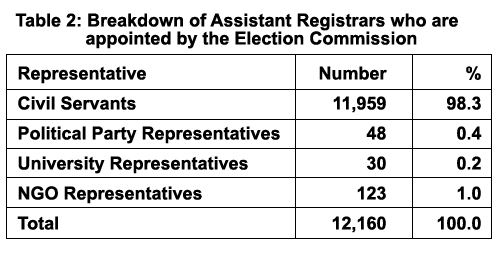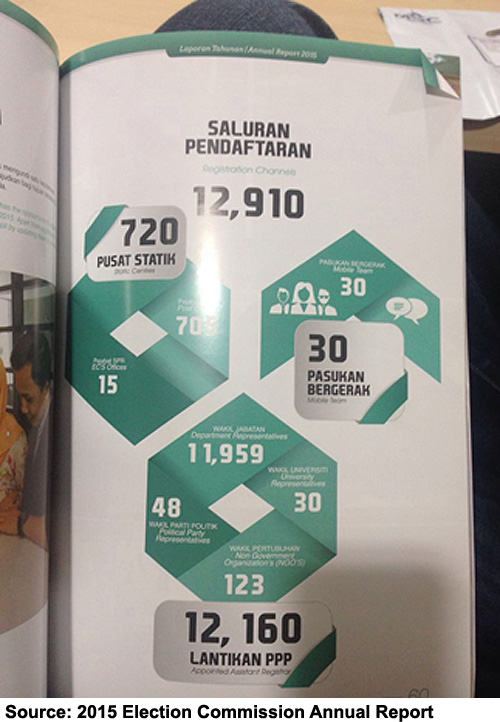MP SPEAKS In the recently released Quarter 3, 2016 electoral roll update, an astounding 501,799 newly registered voters was added to the electoral roll. This is more than five times the number of newly registered voters in Quarter 2, 2016 and five times more than the number of newly registered voters just before the 2013 general elections (See Table 1 and Figure 1 below).
Table 1: Number of newly registered voters by quarter, Q1 2013 to Q3 2016


There are many reasons for the record number of newly-registered voters in Q3 2016. Many voters visited post offices to register themselves upon hearing the rumour that the registration deadline for the 14th general election, were it to be held in March 2017, was Sept 30, 2016.
There was also an increase in voter registration activities, organised by political parties and various NGOs, in cooperation with officials from the Election Commission (EC).
Fair registration?
At the same time, one cannot help but be concerned that the voter registration activities are not being conducted on a level playing field. According to the 2015 Election Commission Annual Report, the EC appointed a total of 12,160 assistant registrars (AROs).
11,959 or 98.3% of the AROs are civil servants representing different government departments with only 48 or 0.4% representing political parties, 30 or 0.2% representing universities and 123 or 1.0% representing NGOs (See Table 2 and Figure 2 below)


With civil servants making such as large percentage of the AROs, one cannot help but be concerned that some of these AROs from departments such as Jasa, the Ministry of Information’s propaganda unit, are being used to register voters selectively, especially in the marginal parliamentary and state seats.
In order to lessen the public’s fears that some of these AROs are not abusing their status, the EC should publish a detailed breakdown of the number of new voters registered by civil servants according to department, by individual political parties, by student representatives in each university and by each NGO.
Before the 13th general election, when many more political party representatives were appointed as AROs, the EC used to publish the number of newly registered voters by political party. There is no reason why the EC cannot continue to disclose this information for all the AROs they have appointed.
In addition, in order to level the playing field, the EC should once again appoint representatives from political parties to be AROs especially since the EC themselves are often short-handed and cannot spare the time to go to places such as pasar malams at night to register new voters.
Better still, if the government can agree to Bersih’s demand of automatic registration of voters when they reach voting age, then doubts about the number of newly registered voters can be significantly reduced.
ONG KIAN MING is Serdang MP.

